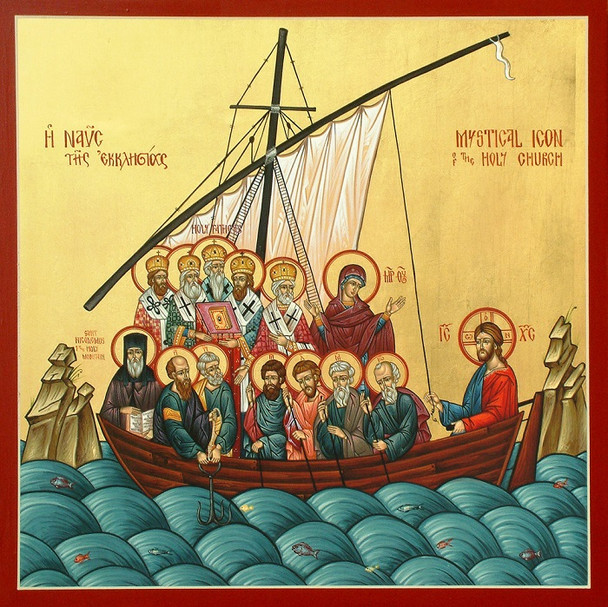I still remember the circle of padded chairs and the industrial carpeting where our Wednesday night group met weekly for Scripture memory. I was a high school sophomore at the time, and our small gathering of teens met after Bible study. In our purses or backpacks we carried stacks of little 2×3” cards in protective blue vinyl holders—cards that helped us to “hide the word in our hearts,” as Psalm 119:11 instructed in my Revised Standard Bible. I also remember, a month or so into the program, my enthusiasm giving way to drudgery as the stack of cards grew, the daily review time became more demanding, and my brain seemed to clog up with too many words to remember.

We used the Topical Memory System that has been available for decades from The Navigators, an international missionary and discipleship organization. Despite my inability to complete the course with flying colors, the emphasis on memorizing Scripture is truly a highlight of my Christian past. Our thoughts shape us, and I’m grateful that I still retain many of those Bible verses in my heart, although the “addresses” (book, chapter, and verse) have become fuzzy over time. Scripture memory is a good thing.
Except . . .
Years later, when I had four children under the age of 10, they participated for a while in a weekly after-school Scripture memory program called AWANA, an acronym for “approved workers are not ashamed,” from Romans 1:16. The teachers were wonderful, but there were some parts of the program that bothered me—specifically, the requirement to bring a friend at least once. By making this a requirement instead of extra credit, I felt that kids were being encouraged to treat their friends as pet projects—as means to an end and as objects to be manipulated. But in spite of some annoying aspects of the program, Scripture memory is a good thing.
Except . . .
Two important questions in both programs were never asked—at least, not in my presence—and thus never answered: Who is choosing which verses are worthy of memorization, and on what basis are these verses chosen? A truckload of theology lies behind each decision, but Christian consumers generally are not informed about the belief systems behind the choices. The participants know only that these aren’t Catholic programs, and for many Protestants, that’s all that matters. The verses are straight from the Bible, and that’s always good.
Except . . .

Words, especially divinely inspired ones, need to be interpreted. When I was much older and had learned a few things, I realized that the AWANA program comes from a strongly Reformed, or Calvinist, belief system. This orientation is clear on the website, but when my family was involved, the internet was fairly new. Nobody talked about this theological bent; AWANA was just a good Evangelical program. The memory verses were familiar to me, and I didn’t think about the fact that they were cherry-picked to reinforce a theological perspective that, even back then, I found problematic. And I guarantee that the other parents didn’t really think about this either—most of us didn’t even know the questions to ask. We just wanted our kids to know the Bible. Once I realized what was going on, I felt a little bit duped and a whole lot angry—and grateful that, for various reasons, we hadn’t continued on.
From what I remember, The Navigators system from my high school years didn’t push a Calvinist interpretation. However, it was incomplete. Both topical Bible memory courses omit an important subject.
A Topical Pattern
I recently searched online for lists of memory verses and found many of them—books, PDFs, blog posts, and cards to print—that described their contents with terms like “essential,” verses that “everyone should know by heart,” or the “top 100” scriptures. The “topical” approach organizes verses by subject matter, and each category includes scriptures that cover several topics within that category. There is quite a bit of overlap, of course, but the memory verses tend to fall into a few basic subjects:
- Life in Christ
- The Importance of the Word of God
- Sharing Christ with Others
- God’s Promises in Times of Trouble
- Growth In Christlikeness / Personal Holiness
- Sin & Salvation
These subjects are all valuable, and the Orthodox Church affirms the importance of filling our minds and hearts with God’s truths. I’ve read about certain saints who knew the entire book of Psalms. And the 20th-century saint Sophrony of Essex wrote,
It is a necessity to read the Bible every day. Then our spirit and mind is formed according to the word of God. Our mind becomes accustomed to living according to the word of God, and when we live several years in this way, then slowly we start thinking within the Spirit of God’s commandments. It is truly amazing that even as small as we are, we can think similarly with the Creator of this world.
But one particular subject is quite important to “the Creator of this world,” yet it is ignored in every memory verse list I found. That subject is: The Church.

Popular memory verses are all individualistic—things to learn about God and salvation, promises, instruction on how to live as a Christian. They are about me and my life in Christ, not us together—with one exception. The Navigators list, under the topic of Fellowship, includes Hebrews 10:24-25, which reads:
And let us consider how to stir up one another to love and good works, not neglecting to meet together, as is the habit of some, but encouraging one another, and all the more as you see the Day drawing near. (RSV)
That’s the only church-related verse I have been able to find in the memory lists. As Fr. Andrew Stephen Damick explains in his book Orthodoxy & Heterodoxy (Ancient Faith Publishing, 2017), among Evangelicals church attendance is important, but
that [understanding of] belonging is usually in terms of fellowship or help for the Christian life rather than a participation in the Body of Christ regarded as necessary for salvation. Corporate worship is important and may even facilitate a spiritual encounter with God, but it is not really critical to salvation.
From an Orthodox perspective, the Church is an essential part of the Christian life—it is the place where we encounter Christ in the sacraments and enter into the ongoing worship in heaven.
With these thoughts in mind, I would like to submit “The Church” as a new category that is vital for Scripture memory, with verses on four related topics that are worth knowing and hiding in our hearts.
Scripture Memory Category: The Church
Topic #1: The Authority of the Church
In St. Paul’s First Letter to Timothy, he wrote a short and pithy sentence that has important ramifications:
I write so that you may know how you ought to conduct yourself in the house of God, which is the church of the living God, the pillar and ground of the truth. (1 Tim. 3:15)

I was never taught about the Church as a foundational source of the truth. I was definitely taught, “Here’s what our denomination believes, and here’s the scriptural support for our beliefs.” Some go so far as to say that their collection of congregations is the Church, yet none of them quoted St. Paul’s words from 1 Timothy. I think the concept of the Church as the foundation of truth would require too much explaining, and explaining away—especially for denominations that are only 150 years old or younger.
What’s interesting to me about omitting this verse is that the first two sections in the third chapter of 1 Timothy are quite familiar to committed Protestant Christians: the qualifications for bishops (or “overseers”) and for deacons, addressing their character qualities, faith, and family life. Evangelicals take Paul’s instructions here seriously when nominating someone to be on, say, the elder board of a church.
My guess is that this verse is largely ignored as part of the general Romaphobia of the Protestant world. And, this verse raises an important question: Which church is “the pillar and ground of the truth”? The congregations that subscribe to Calvinist or Arminian views of salvation? Those that baptize infants or those that practice believers’ baptism? Those that believe the miraculous gifts of the Spirit are alive and active today, or those that believe that miracles ceased once we had the Bible to show us the way?
It’s not difficult to see why this verse is ignored.
Topic #2: Proper Interpretation of Scripture
No prophecy of Scripture is of any private interpretation, for prophecy never came by the will of man, but holy men spoke as they were moved by the Holy Spirit. (2 Pet. 1:20–21)

I don’t even remember a sermon on this verse, much less any encouragement to memorize it. We did learn 2 Timothy 3:16, which in the RSV affirmed, “All scripture is inspired by God and profitable for teaching, for reproof, for correction, and for training in righteousness,” but we didn’t learn anything about who has the right and the ability to interpret it correctly. We were kind of on our own for that.
And no wonder. There are tens of thousands of denominations in existence, plus congregations that are disconnected from any larger church structure (hence, nondenominational). That’s a whole lot of private interpretation going on. I have known people who proudly subscribe to the philosophy of “no creed but the Bible.” They rarely spend time thinking about the undeniable fact that the Bible’s words must be interpreted.
The Orthodox Church understands that the Bible comes from the Church, was written for the Church, and is held in her consciousness and interpreted within the historic Church. The Orthodox Study Bible contains a helpful footnote on this verse:
Just as Scripture was not written by the mere volition of men but by the inspiration of the Holy Spirit, so Scripture is to be interpreted by holy men guided by the Holy Spirit. Heretics and unstable Christians interpret incorrectly. The apostles (the we of v. 19) are guided by the Holy Spirit, trusting in the promise of true interpretation (Jn 16:13). The Church, founded by the apostles, likewise receives the Holy Spirit.
The note then quotes one of my favorite saints, Irenaeus, bishop of Lyon, France, from the second century:
For the apostles, like a rich man in a bank, deposited with her [the Church] most copiously everything which pertains to the truth. And everyone who wishes, draws from her the drink of life. For she is the entrance to life, while all the rest are thieves and robbers. That is why it is surely necessary to avoid them, while cherishing with the utmost diligence the things pertaining to the church, and to lay hold of the tradition of truth.
We should look to the holy Fathers for understanding and the continuity of the Faith, not our own rational minds, our preferred denomination, or the latest bestselling Bible teacher. The Fathers write from the context of life within the Church, affirming her historic teachings.
Having read Holy Scripture very carefully, you should also read the holy Fathers who interpret the Scriptures. You will receive no less delight from reading the Fathers than you do from the Scriptures. The Fathers develop the hidden meanings in Scripture and with their own writings help us to understand what we did not before. Because of that philosophic axiom that all men by nature seek knowledge, we must say that great delight follows naturally when we learn about hidden and unknown matters. This is why there will be ineffable joy and gladness that will come to your soul from the interpretations and the words of the holy Fathers. You too will be shouting, as did David, those enthusiastic words in the Psalms. — St. Nikodemus of the Holy Mountain
I’ll take “ineffable joy and gladness” any day, not endless theological arguments between competing splinter groups.
Topic #3: The Place of Oral Tradition
I have been present in Christian gatherings where tradition was a dirty word. I sat in a conference session with a well-known charismatic author who described people who attended liturgical churches as “old wineskins,” referring to Jesus’ words from Mark 2:22, that “no one puts new wine into old wineskins; or else the new wine bursts the wineskins, the wine is spilled, and the wineskins are ruined. But new wine must be put into new wineskins.” Jesus’ words were misused (private interpretation again) as proof that new ways of thinking and doing things are “new wine”—the work of the Holy Spirit. This view, of course, grants a lot of leeway in Christian practice and doctrinal belief.

I’m sure the same speaker who was eager for new workings of the Holy Spirit—which really means new traditions—would condemn oral tradition in the Orthodox Church because it can’t be found in the Bible. But the Apostle Paul mentions the importance of unwritten, oral teachings in three places, and these verses, of course, are not included in popular memory lists.
In his Second Letter to Timothy, St. Paul writes:
You therefore, my son, be strong in the grace that is in Christ Jesus. And the things that you have heard from me among many witnesses, commit these to faithful men who will be able to teach others also. (2:1–2)
He also writes in 1 Corinthians 11:2: “Now I praise you, brethren, that you remember me in all things and keep the traditions just as I delivered them to you.”
Yet another Pauline admonition that points to oral tradition is 2 Thessalonians 2:15: “Therefore, brethren, stand fast and hold the traditions which you were taught, whether by word or our epistle.”
But many Protestant readers might miss the meaning of the Thessalonians verse, depending on which Bible they use, because of the way the word paradosis, which means “tradition” in Greek, is handled. Father Andrew Damick writes,
Readers of the Protestant-made New International Version (NIV) translation will miss this, because the NIV translates the Greek word paradosis (“tradition”) as “teaching” when it is used in a good light but as “tradition” when used negatively. This approach distorts what the Bible actually says. The biblical text distinguishes between two different kinds of paradosis—the tradition of man and the tradition of God. (O&H, p.104)
The NIV’s translation bias is rather horrifying, but I think it’s explainable in light of the origin of the Protestant movement as a protest against Catholicism. The suspicion of tradition flourished in light of the new doctrines that the Roman Catholic Church has added over time, such as purgatory and papal infallibility.
Unfortunately, most Protestants are unaware of the unchanging theology of the Orthodox Church and the richness of the saints’ insights across the centuries. St. Nikolai of Ohrid and Zhicha exclaimed,
The tradition of the Fathers is the experience of the saints in the spiritual field, the enormous experience of nearly two thousand years, the experience of many hundreds and thousands of holy men and women. What an extremely rich depository of wisdom! What an immense mass of proofs of every truth of Holy Scripture! All that wealth, all that wisdom, all those proofs, all that experience, the Protestants have rejected! Oh, what inexpressible madness! Oh, the poverty of beggars! — The Prologue of Ohrid, Vol. 1, p.711
Topic #4: Referring to a Priest as “Father”
For though you might have ten thousand instructors in Christ, yet you do not have many fathers; for in Christ Jesus I have begotten you through the gospel. (1 Cor. 4:15)

In the previous verse St. Paul refers to the Corinthians as “my beloved children,” meaning he viewed himself as their spiritual father. Yet Protestants love to criticize the Orthodox and Roman Catholic practice of calling a priest “Father.” They justify this by quoting Jesus: “Do not call anyone on earth your father; for One is your Father, He who is in heaven” (Matt. 23:9). This is a bit ridiculous, since I have never heard of any of these critics refusing to refer to their earthly dads as their fathers.
Jesus’ admonition against calling “anyone on earth your father” is not usually included in memorization lists, but many people have memorized it because of their private interpretation of Jesus’ words. The negative reaction to calling a priest “Father” is so ongoing—and, I suspect, based again in Romaphobia—that way back in 1994 Ancient Faith Publishing actually produced a booklet, Call No Man Father, that addresses this issue. It continues to sell.
Why “The Church” Is Not a Scripture Memory Category
For the first several decades of my life, one habit of my Roman Catholic friends and acquaintances puzzled me. They talked incessantly about “the Church”—the Church teaches this, the Church requires that, the church, the church, the church. My internal response to this was always the same: “Why do they keep talking about the Church? Why don’t they talk about Jesus? Why don’t they quote the Bible?”
Now, as an Orthodox Christian, I get it. It’s about authority. My mystified attitude about discussing the Church shows that I had internalized the weak ecclesiology that surrounded me. Even though I had attended church faithfully from childhood, as an Evangelical Christian I didn’t understand what the Church is. I had no concept of the Church as the “ark of salvation,” or that the Church is essential. A helpful paragraph from OrthodoxWiki.org states:
The Orthodox see the Church as a mystical organism, not an organization of like-thinking people. In the Church is the community where man is what he is created to be and can grow for eternity in divine life in communion with God through Christ in the Holy Spirit. The unity of the Church is not broken by time or space and is not limited merely to those alive upon the earth. The unity of the Church is the unity of the Blessed Trinity and of all of those who live with God: the holy angels, the righteous dead, and those who live upon the earth according to the commandments of Christ and the power of the Holy Spirit.

Only a few decades ago, these words might as well have been written in a foreign language. My friends and I didn’t talk frequently about the church, except as the place we attended to worship: “my church” and “my friend’s church”—definitely “a gathering of like-thinking people.”
Attending church was a good idea, but it was not necessary to salvation. Sacraments were not important, and no one seemed to know what a pastor’s job actually is. This is why I included “priest as father” as a topic in the Church category. In the Protestant world, a pastor preaches. Or, in a large church, if he or she is not the main preacher, the pastor might be an administrative pastor or a counseling pastor, a pastor in charge of fellowship or youth. Pastors do not take confessions, and in a nondenominational church they may perform baptisms and administer communion, but really, other faithful people can perform the same functions.
Remembering People’s Spiritual DNA
Those of us from Evangelical backgrounds, knowingly or not, trace our spiritual heritage back to the Radical Reformers, who taught that the only two sacraments they recognized, baptism and communion, were outward signs of God’s grace and nothing more. If sacraments are only symbols, why are ordained clergy needed? I can pray with my friends at home, and we can pass the grape juice and crackers, then go outside and baptize in a kiddie pool in the backyard.
The inclusion of Hebrews 10:24-25 in the Navigators program, about “not neglecting to meet together,” is laudable. The compilers of this memory system understood that the practice of attending church on Sundays was considered important in the Protestant realm.
But this understanding has changed over time. It is significant to note that I couldn’t find this verse in any current list of recommended scriptures to memorize. And, as so many worship services in Evangelical churches have devolved into a concert and a lecture, the practice of attending church, even for fellowship and teaching, has lost importance among the rank and file.
I know several middle-aged Evangelicals from my past who no longer attend church. They still believe in Jesus but have a sense of “been there, done that.” They can listen to good sermons on YouTube. They can pray at home. They can listen to Christian radio if they want pop music with spiritual lyrics.

The “home church” movement has burgeoned for decades because of weak Protestant ecclesiology. The dechurched but still Christian folks I know make up their own definitions of “church” with the help of various authors and speakers. These self-appointed experts have no authority for their views, but few people think about this. Since the only recognized authority is the Bible, the person with the most persuasive argument from Scripture wins.
These folks look to Matthew 18:20, where Jesus said, “For where two or three are gathered together in My name, I am there in the midst of them.” In their view, getting together with some Christian friends at a coffee shop qualifies as “church.”
Whenever we talk to Protestant or de-churched friends and co-workers about the Church, it is important to remember where they are coming from. It is also important for me to remember where I came from, and the fact that for most of my life I gave a lot of thought to Jesus but almost no thought to the concept of the Church—except as it related to me and my relationship with Jesus. I have no right to judge others for the things they have been taught.
And, I have to be honest about using these topical verses about the Church. They are helpful in our discussions with the non-Orthodox, but this technique—for lack of a better word—employs the Protestant habit of lifting verses out of their context to prove a point. The difference is, the point of these verses about authority, interpretation, tradition, and the role of the priest are supported by the ancient Church’s understanding and practice through two millennia.
And so we’re back to the question of authority. All these memory verses are inspired selections from the Word of God. Scripture memory truly is a good thing.
Except . . . Let’s be sure that our interpretations of these sacred words are rooted in the historic Faith of the Orthodox Church.
***
Next time, I’ll write about another skewed approach to a topic that ultimately prepared me for my journey to Orthodoxy. When I looked at one particular verse with fresh eyes and began a personal study, my understanding of the relationship between faith and works was challenged.
I hope you can join me.
It was the excessive congregationalism of the Lutheran Church that first made me think of leaving. Our weak ecclesiology was discussed in my seminary. As one raised Lutheran, I was aware of Evangelical ideas but had no idea how deep the rot is. I learn a lot reading things like this, and realize my journey to Orthodoxy is comparatively short. I find your list very helpful. Thanks.
Wonderful! Thank you, Randall. I often think of Lutherans as Evangelicals, but you’ve reminded me that there are variations among the various Lutheran groups.
Thank you so much for this, Lynn. This very morning I was considering how I could proceed with Scripture memorisation in the months ahead. I wasn’t sure what to do, as I am a catechumen and didn’t really know much about the Orthodox perspective. **Minutes later**, I saw your broadcast featured on the homepage of the AFR site. I listened carefully to your programme and looked up the passages that you mentioned.
I so much appreciate the work that you put into this. It was just what I needed to hear, and I am happy to see that the printed version of the broadcast is here.
Thank you for your kind words, Anthea!
It always amazes me when 1 Tim 3:15 is quoted as an important verse for the authority of the church. But I have never read it that way. Here:
But if I tarry long, that thou mayest know how thou oughtest to behave thyself in the house of God, which is the church of the living God, the pillar and ground of the truth. (1Tim 3:15) (authorized version.)
In my early years I was taught to “diagram” sentences in order to better understand English grammar. I taught my five children this valuable technique, even though it was no longer taught in their school. If I were to diagram 1 Tim 3:15 I would assign the phrase “the pillar and ground of the truth” to point to the word “God”, not the word “church”. There is only ONE pillar and ground of truth.
Thank you for commenting. Both “in the house of God” and “of the living God” are prepositional phrases, but that’s in English translation. I do not know the Greek construction and am not qualified to comment on it, but the concept of the Church as the “pillar and ground of the truth” is not a new or novel interpretation. And I agree that God is the source of all truth—and the Source of everything.
Thank you for the article.